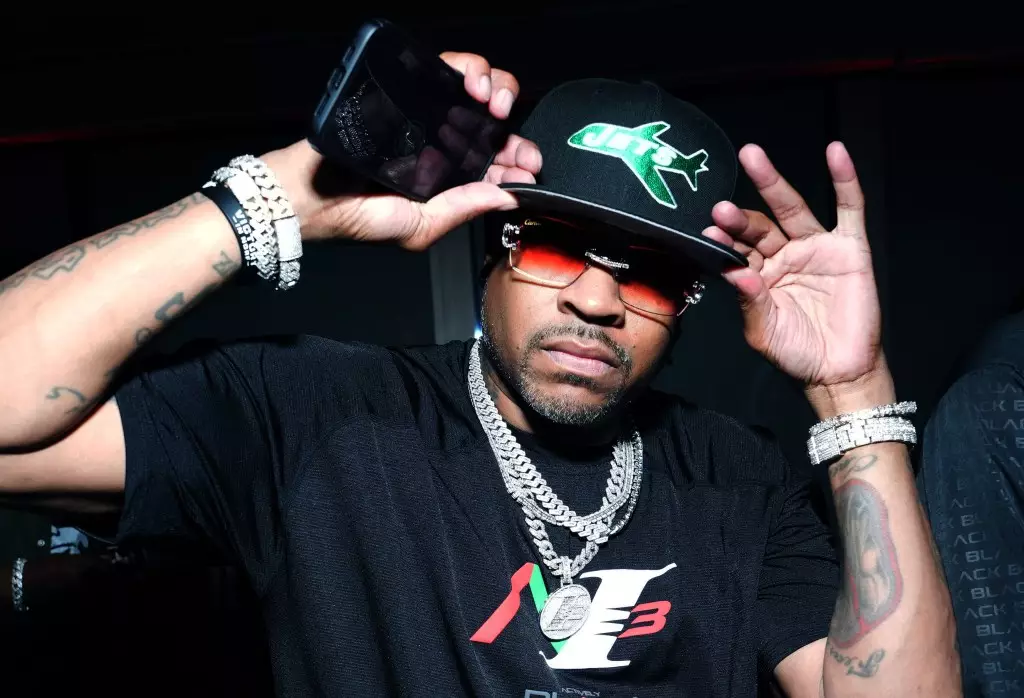The upcoming docuseries on Allen Iverson promises to peel back the layers of a complex figure who dared to challenge the status quo in professional basketball. While the promotional narrative paints him as a rebellious icon, it neglects to critically examine whether his influence was genuinely progressive or merely provocative for the sake of attention. Iverson’s uncompromising persona undeniably reshaped the sport’s cultural landscape, but at what cost? The glorification of his individualism often glosses over the structural and societal implications of his approach—questions about whether his rebellion furthered inclusivity or simply reinforced notoriety are rarely asked.
This series’ emphasis on Iverson’s “authenticity” risks romanticizing behavior that, in many contexts, bordered on marginalization. While resilience and sacrifice are admirable qualities, they shouldn’t serve as excuses for perpetuating stereotypes or dismissing systemic issues within the league. The narrative suggests Iverson’s style and attitude have left a lasting positive imprint; however, it is essential to consider whether his approach fostered a truly inclusive culture or merely celebrated individual defiance. His influence is undeniable, yet a critical eye might view it as a form of cultural commodification—one that prioritizes personal rebellion over collective progress.
Personal Stories or Promotional Spin?
Interviews with family, friends, and fellow players promise an intimate look into Iverson’s life, but such perspectives can be curated to serve a narrative of heroism and resilience. It’s inevitable that the series will highlight Iverson’s struggles and triumphs, but what about the controversy and the divisive aspects of his persona? There’s a tendency in promotional materials—especially those produced by powerful industry players like Shaquille O’Neal and Stephen Curry—to craft sanitized, inspirational stories that uphold a larger commercial agenda. These narratives sometimes overlook the nuance required to truly understand a figure who epitomized both brilliance and controversy.
By emphasizing vulnerability and reflection, the doc might humanize Iverson, but it risks watering down the gritty realities of a man who thrived on defying convention. Is this reflective tone genuine or a strategic move to soften his image for broader appeal? Critical viewers should question whether the narrative offers honest insight or merely constructs a hero for contemporary consumption—an ‘original’ whose rebellious knot is neatly integrated into the tapestry of NBA history without challenging prevailing power structures.
A Cultural Catalyst or Reinforcement of Self-Interest?
While proponents like Shaquille O’Neal and Erick Peyton laud Iverson as a trailblazer who reshaped the culture, a more discerning approach raises concerns about whose agendas are truly being advanced. The celebration of Iverson’s “fearless authenticity” often sidesteps deeper conversations about racial dynamics, economic disparities, and the league’s role in perpetuating certain stereotypes. His influence, while undeniable, largely centered around individual expression rather than systemic change.
In a broader societal context, the glorification of figures who push boundaries should be scrutinized through a lens that balances admiration with accountability. Does Iverson’s legacy serve as a catalyst for genuine progress, or does it simply reinforce a narrative of the “rebel” as an acceptable face of cultural dissent? As a centerpiece in a highly commercialized documentary, Iverson’s story risks becoming another chapter in the entertainment industry’s tendency to commodify rebellion—turning defiance into spectacle rather than a call for meaningful change.
Such reflections are essential to move beyond surface-level hero worship and understand whether Iverson’s legacy genuinely challenged the establishment or merely navigated its boundaries for personal or brand gain. Critical reflection reveals that the hero’s journey, often celebrated, may sometimes obscure the complex realities of social resistance, making it vital to question whether the reverence is deserved or just another curated image.


Leave a Reply